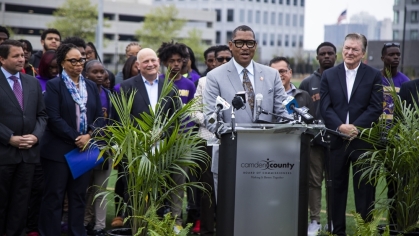Rutgers–Camden Hosts Second Annual Racial Justice Summit
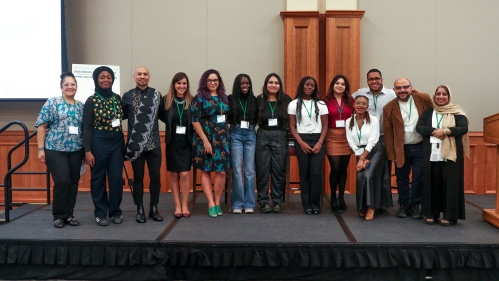
Samira Lari CCAS’24 has been interested in environmental justice throughout her academic career. She shared that interest with those gathered on the Rutgers–Camden campus for the second annual Racial Justice Summit, a lively exchange of ideas sponsored by the Institute for the Study of Global Racial Justice at Rutgers (ISGRJ).
The summit was founded as an opportunity to explore the future of racial justice on all three Rutgers campuses; this year’s theme, “Living and Breathing Camden,” fostered nuanced conversation at the intersection of housing policy and environmental justice in Camden, N.J.
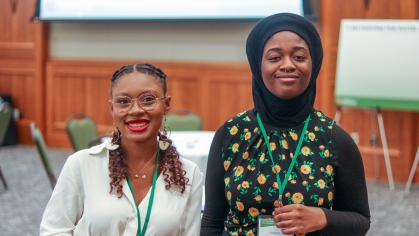
“Black and brown communities are often the dumping ground for environmental pollution,” said Lari. "The people in those communities deserve to have a voice and a choice in how decisions are made and shouldn't suffer from poor air quality or excessive flooding simply because of less-than-equitable policies.”
Lari was on the panel alongside several members in her cohort of Racial Justice Learning Community fellows, a group of Rutgers undergraduates committed to activism and advocacy.
As part of the program, fellows are asked to develop initiatives that address concerns and challenges in the communities they care deeply about. Lari and another Rutgers–Camden Racial Justice Learning Community fellow, Grace Asare, produced and released a documentary film, “A Narrative on Camden's Resiliency: The Unspoken Housing and Environmental Issues,” a portion of which was shown during the summit.
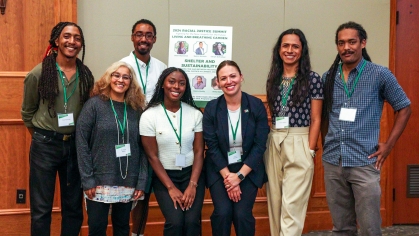
Asare, an Honors College senior majoring in political science, also moderated a panel entitled “Shelter and Sustainability: Bridging the Gap Between Housing and Environmental Justice in Camden and Beyond,” which engaged community leaders and experts in law and land use in a discussion of housing inequity, environmental injustice, and strategies to fight against them.
The day included a keynote from Arielle V. King, the assistant director of the Racial Justice Center at the New York Civil Liberties Union. She shared her perspectives on how to inspire a sense of climate optimism while addressing deep-seated environmental injustices.
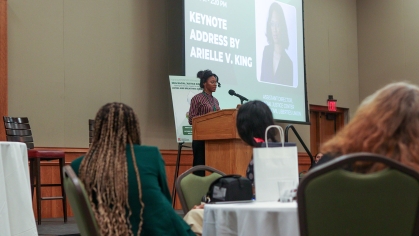
"An essential part of environmental justice is the pursuit of self-determination," said King. "It is essential to uplift communities and provide the tools and resources necessary to drive change so people can empower themselves."
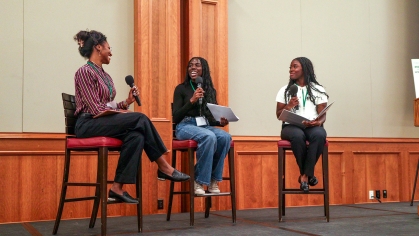
For Lari, she expects her experience at the conference and as a Racial Justice Learning Community fellow will give her a solid foundation for doing the work to drive lasting, meaningful change.
"Camden is often a city that people forget, but it is somewhere people shouldn’t forget because the people and culture of this city are very unique," said Lari. "I want to create more opportunities for the community to come together to talk about what is happening and—more importantly—how we can fix it."
